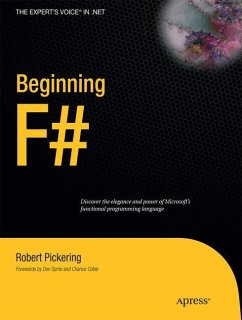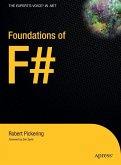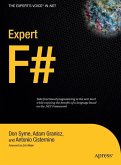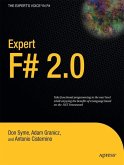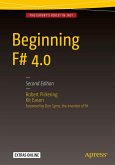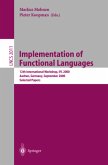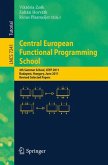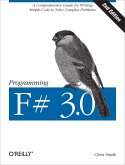Functional programming is perhaps the next big wave in application development. As experienced developers know, functional programming makes its mark by allowing application builders to develop solutions to complicated programming situations cleanly and efficiently. A rich history of functional languages, including Erlang and OCaml, leads the way to F#, Microsoft's effort to bring the elegance and focus of functional programming into the world of managed code and .NET.
With Beginning F#, you have a companion that that will help you explore F# and functional programming in a .NET environment. This book is both a comprehensive introduction to all aspects of the language and an incisive guide to using F# for real-world professional development.
Reviewed by Don Syme, the chief architect of F# at Microsoft Research, Beginning F# is a great foundation for exploring functional programming and its role in the future of application development.
Hinweis: Dieser Artikel kann nur an eine deutsche Lieferadresse ausgeliefert werden.
With Beginning F#, you have a companion that that will help you explore F# and functional programming in a .NET environment. This book is both a comprehensive introduction to all aspects of the language and an incisive guide to using F# for real-world professional development.
Reviewed by Don Syme, the chief architect of F# at Microsoft Research, Beginning F# is a great foundation for exploring functional programming and its role in the future of application development.
Hinweis: Dieser Artikel kann nur an eine deutsche Lieferadresse ausgeliefert werden.

